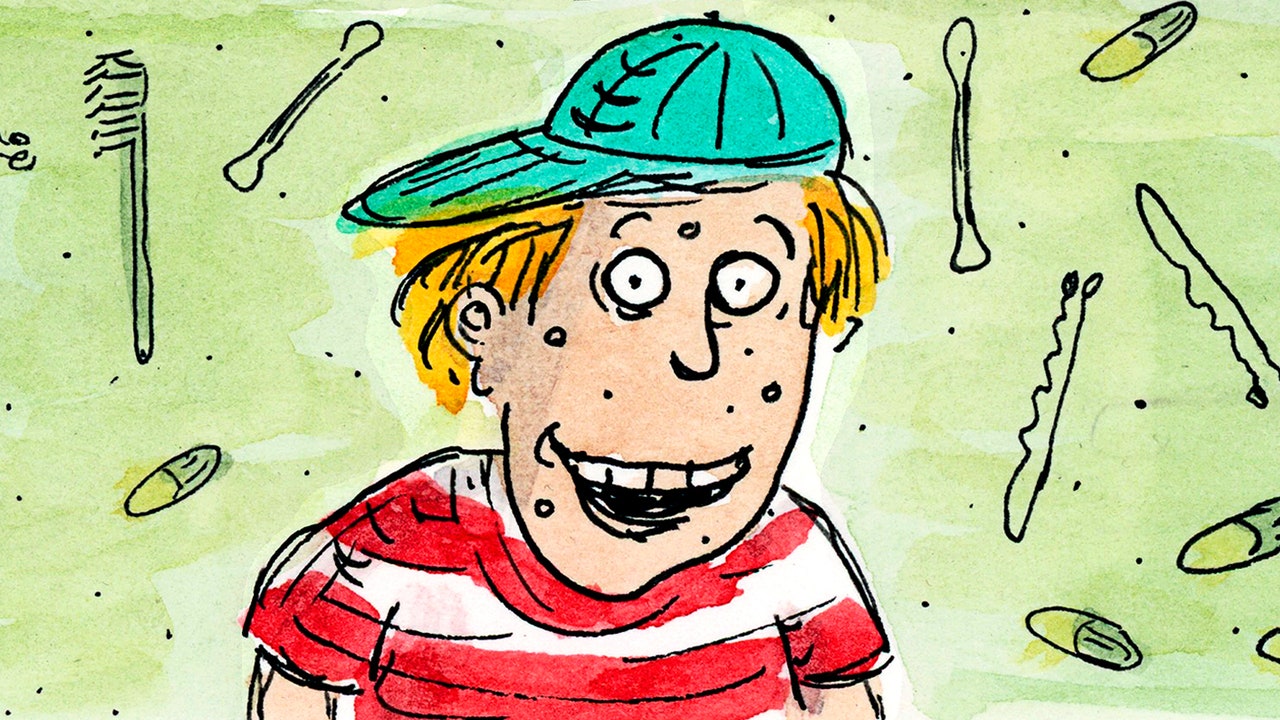Many of the early records bearing Tony Visconti’s name made me eager to get out into the world—if only to agitate. In 1971-72 the mighty blaze of T.Rex singles were beyond price to me. They had all the immediate eager motion of pop records, but were also strangely reflective—a mad stew of Englishness and worldliness with Tony’s name on each side of the label. If you enjoyed the music of T.Rex it seemed to prove that you were someone. Here, it seemed, was Art in motion: guitar savagery chopping up the soundstage; pop with intellectual distinction, using full orchestra—if only for a mere twenty haughty seconds.
Making the T.Rex soundscape both fantastic and naturalistic was an abrasive clash of non-traditional routes to the pop conclusion. The wealth and detail and contrast of layered orchestration wrapped around the unravelled riddle of Marc Bolan’s poetry (well, let’s call it that) worked so well that Bolan stayed beside Tony almost until Bolan’s life ended with death. At its highest artistic peak, with the strange flood of ‘Telegram Sam’ and ‘Metal Guru’ we are assaulted by the musical equivalent of secret stairways and false walls, and something enters into me which I can barely fathom. I wanted pop music to be true, and it was with David Bowie’s LP The Man Who Sold the World, which enlivened 1972 as a forgotten reissue, edging up to #;26 in the British charts. It is a soft sound, with luxuriant confidence from Bowie, whose imagination was served by the Visconti methodology. Still, today, it stands as David Bowie’s best work. The first side, especially, is musical literacy delivered.
With Bowie, the tone and cadence are all there: no sentimentalism. The instrumental textures are wispy and often child-like; acoustic and recorder sounds of turn-of-the-’70s dropout London. The Bowie-Visconti vision is concentrated. A good producer gets at something in a singer (or musician) and Tony was there to nail the gift of Bowie just perfectly—making suffering sound like a superior condition—live this life or don’t live any. Listen to the album even now and you are right back there. The mavericks are those who liberate themselves, and Bowie and Visconti did so with The Man Who Sold the World… and we played our part by listening.
The Mael machinery of Sparks utilized Tony for their 1975 surgical offering, Indiscreet. The versifying of Ron Mael introduced a new style of pop poetry, and the scattershot pace of Russell Mael’s vocals sounded like someone running out of a burning house. Russell had been a T.Rex fan, and by 1975 it was Sparks themselves who were shaking public tastes. Indiscreet was their fifth album of great resonance, lunging to #18 in the chart. The sound of this album is so chaotic that it often seems to play for laughs. Either the Maels, or Tony Visconti, were asking: What can we show them that is new? From a tipsy teatime waltz to unstoppable violins, the pace pulverized the listener, and Russell’s mouth seemed unable to close. There are so many latitude and longitude instrumental textures that the masterstroke was just almost overcooked. Since Ron and Russell Mael were obviously insane, Tony could only have walked into this session armed with a swirl of guesswork. The disorder lay in the electronic savagery of the Maels, who had spent their early lives strapped to an iron bed. Pulling them back from the edge, Indiscreet (somehow a commercial venture) produced two riotously diverse hit singles.
The most important feature of recorded noise is the pleasure it can bring to the listener. Tony has always—somehow—been a part of my life, but I didn’t ever imagine that his success-ridden career would lead him to me, nor I to him, yet in 2005 we recorded Ringleader of the Tormentors in Rome. As a non-musician/ skimmer-scholar, I’ve always known what I wanted without always knowing how to get it. Many years on from the escapist spirits of Bolan and Bowie…it is still there…in the Visconti walk. An actor would be thrilled to discover a new expression for the camera, as Tony Visconti is delighted to ambush the end of a song with a new musical twist. He has astounding recall of whatever it is he’s just heard, and he can talk and listen at the same time. The point of a good recording is to make us more aware of ourselves—as singers or musicians, and Ringleader of the Tormentors stands as a joy greater than pleasure for me. In several countries across Europe…it zaps to #1.
Tony understands the code of music brilliantly, and he is not authoritarian in the patronizing way that so many producers who have left their fingerprints on the 1960s and 1970s are. He is persuasive without ever making you need to disembarrass yourself; his role is complicity. There are many respected bores of Tony’s generation, nursing memories and resentments and never letting the trapped listener forget—but Tony isn’t like that. He doesn’t pick over the Saxon remains of T.Rex; the time is always now. He is a noble example of the self-flogger who knows that the song doesn’t end just because it’s over. Musical notations are images, and the Visconti style is timeless and lionized and is therefore forevermore.
MORRISSEY
October 2006




